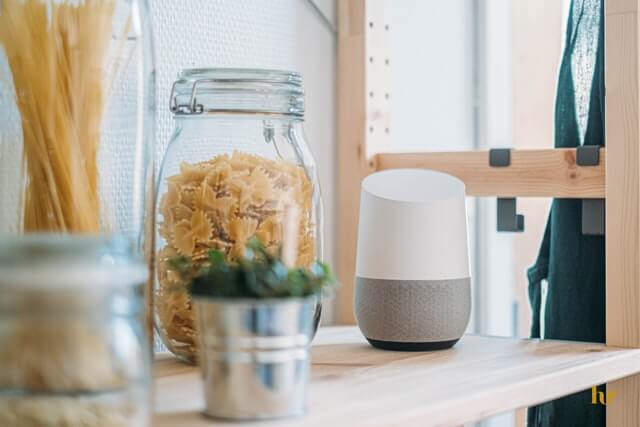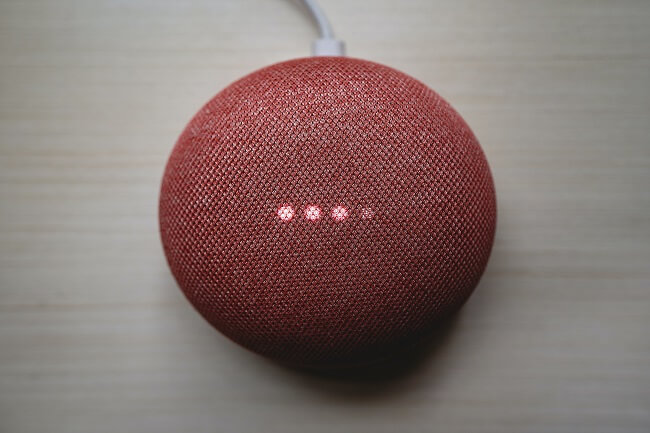The world has altered significantly since the start of COVID-19, and the increased use of voice technologies is just one of these ways. Implementation of smart speakers has sky-rocketed as people have been looking for different forms of communication, entertainment, and ways to continue on with normal human interactions. Smart speaker usage during COVID-19 has also seen widespread utilization across the medical field as well.
As of March 2020, a study performed on media devices had shown that the worldwide use of smartphones and laptops had increased by 70% while voice assistant usage during covid-19 also showed an rise of 7% globally. As the virus persists, the use of these devices are predicted to only grow as companies and different industries find use of voice assistance and smart speakers.
This article will dive into the different approaches people, industries and markets are using regarding voice technology into their lives, as well as understand why COVID-19 has produced an influx of use of this service.
The Future of Voice Technologies
Voice assistant usage amidst COVID-19 has shown definite growth compared to previous years, something that is predicted to only increase as time goes on. For example, there are approximately one billion users of Google Assistance with 500 million actively using the device per month. By the end of 2020, it’s predicted that 50% of internet searches will come from voice-based assistance and a total of 30% of searches will be performed by a device without a screen.
Chinese Voice Assistant Usage Amidst COVID-19 and Beyond
China alone has shown a growth of 13% in voice assistance use, mostly because of the convenience that comes along with this technology. Mandarin being a complex written language, made up of over 5,000 different characters, means that the use of voice recognition has immensely cut down the time it takes to communicate through devices in comparison keyboards that involve multiple steps to convey simple conversations.

Another way this intelligence is being used is for language translation. Created by a chinese entrepreneur, iFlytek Translator is a voice recognition device that listens to a person speaking and translates it outloud in the desired language. The device offers translations for 33 languages and even is capable of translating wifi-free from Mandarin to English. As the use of voice technology grows throughout China, it’s likely other countries will follow in its footsteps developing their own voice assistant usage amidst COVID-19.
Medical Use of Smart Speakers
With the pandemic being highly infectious and unpredictable regarding how people will respond, many patients worldwide have become immobile, too weak to take care of themselves or leave a hospital bed. Fortunately, voice assistant usage amidst COVID-19 has been important in giving patients the chance to keep in contact with their families, alert nurses for needed help, and keep health staff at a safe distance when contact is unnecessary for either party.
Healthcare professionals now even have the ability to track and monitor patients remotely through devices like Sonde Health and Sense.ly’s Molly. These devices can track a patient’s speech to check for any possible signs of a stroke or heart attack through dialogue patterns and slur of speech. Overall, smart speaker usage during COVID-19 has been a very successful and safe way to keep professionals and patients safe.
7 Tips to Make Your Website Voiced Optimized
One of the top reasons why people are favoring voice technology is because of the speed and convenience it brings to gathering information or answering questions. Regarding your own brand’s website, as time goes on and the technology grows in use, it is wise to optimize voice search recognition through an SEO approach. Below are 5 tips on how to actively optimize your site website for voice technology:
1. Local Listings: It’s very common when people are traveling to use voice recognition to look up places to eat, visit, or stay. Specifically, when a person is asking their phone for “restaurants near me” when on vacation, incorporating phrases similar to that will likely get your site notices or increase your ranking in a Google search.
2. Longer Keywords: When someone searches for a recipe online, they are likely to type only a few keywords, such as “spaghetti and meatball recipe” in contrast to people using their voice assistant device, they may ask, “Hey Alexa, what ingredients do I need to make spaghetti and meatballs at home?”. When optimizing the use of keywords for smart speakers, think of adding in long form text to your content that a person may be asking their device. Overall, when voice technology is in use, it’s people communicating in full sentences opposed to fragmented keywords for online search.
3. Filler Words: Results have shown that filler words including adverbs, adjectives and pronouns are all crucial components to high ranking voice keywords. This is because when a person uses this intelligence, they are speaking in complete sentences. The content on your own site should be made up of complete, understandable thoughts that can be picked up as a full statement by devices.
4. Question Form: Overlapping with previous points, your site should use question formats to become more searchable to users. Many people use devices to ask questions and this is one of the top factors to consider when optimizing the technology.
5. Direct Answers: When voice AI is scanning the internet for an answer to a question, sites that give direct information are likely to be the chosen platform of information. Although, your content should be lengthy enough that it aligns with the way people speak, make sure the statement is to the point and easy to understand.
6. Reconstruct Content: Just because your site may not originally have been set-up to optimize voice recognition, adjusting past content is a great way to make your online store compatible with the technology. For example, if your company offers a service such as digital marketing, by reconstructing headlines to “Why would my business need digital marketing” may be a successful way of becoming recognized by AI.
7. Function of Site: Running tests for your site regarding mobile and desktop functionality will keep your company on top of any loading issues that can steer voice technology away from your brand. Smart speakers searching to give users the fastest answer possible could potentially skip over your site without the correct management.
Concluding these tips, your business should be aware of the extensive use of SEO keywords and phrases to be recognized by voice assistant technology, as well as clear and concise statements and overall site capability.
Takeaways
The virus seems to have prolonged effects on peoples’ opinion of leaving their homes, meaning the use of voice technology will predictively see a constant growth for years to come. Countries worldwide will continue to take advantage of this intelligence, likely integrating it into most, if not all citizens’ lives. Overall, businesses will have an advantage over time as they begin to optimize their sites for voice recognition searches.





Tell us your thoughts in the comments